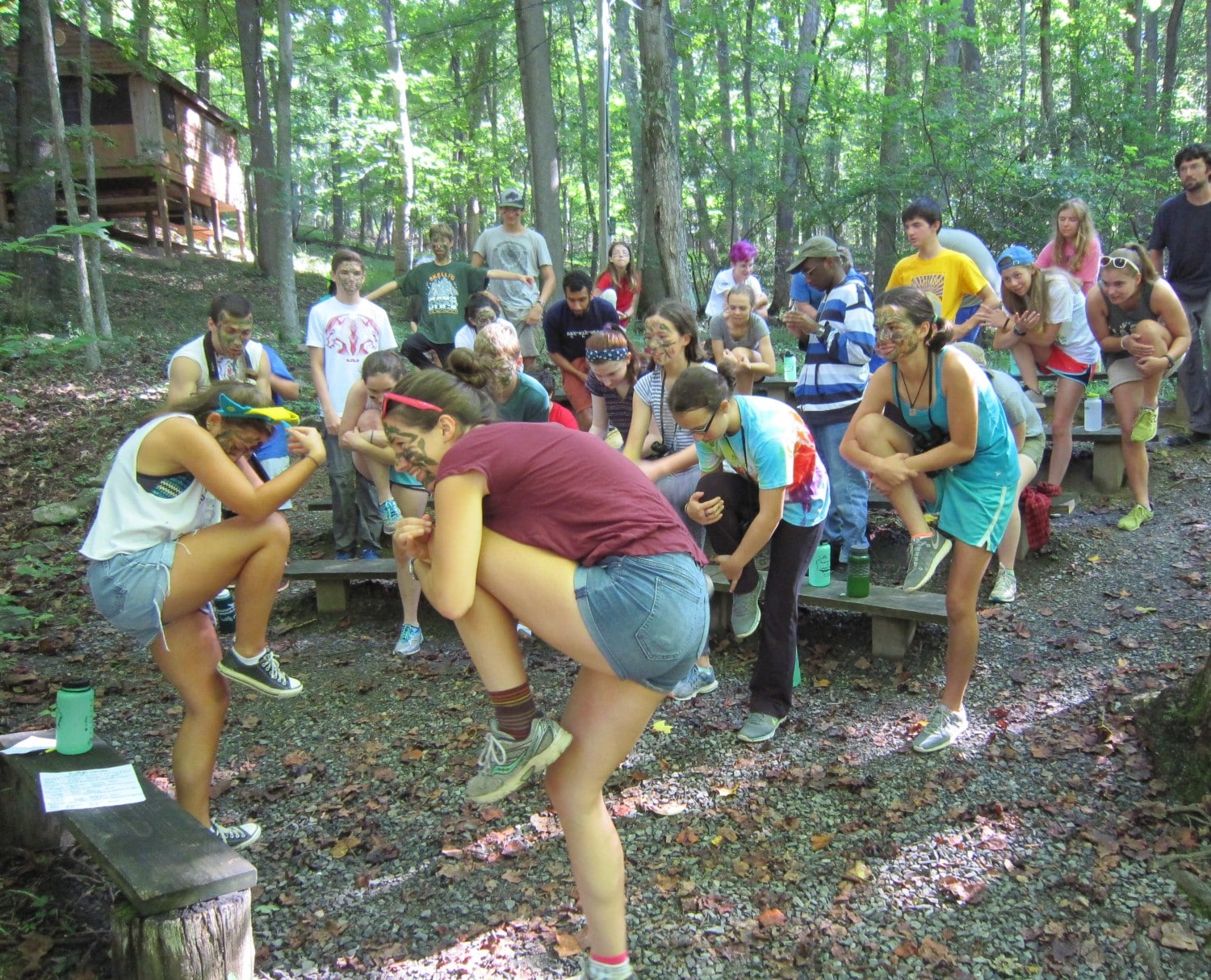Preparing For Camp
Program Description: Campers gain basic and specific knowledge about several areas of natural history, develop a greater understanding of aspects of nature through a project of his/her choosing, and are encouraged to behave in a manner that has minimal impact on the environment and is healthy for themselves and others. They take recreational and reflective time outdoors (alone and in groups) and live as a community with other campers and staff.
Activities include direct interaction with the natural world at all times of the day. Campers will be handling plants and animals, hiking in daylight and nighttime, physically active in games and workshops, and are likely to get wet and dirty and accumulate insect bites. They will camp out a few times, under the sky or a tarp, and have daily opportunities to swim in a freshwater pond or river. Senior Session campers will have the option of climbing 60 feet up a tree and onto a canopy walkway. Senior Session campers may also have the option of backpacking for three days in an area with little to no cell phone coverage. The creative, spontaneous nature of the program and the vagaries of weather preclude an exact list of the planned activities for any session.
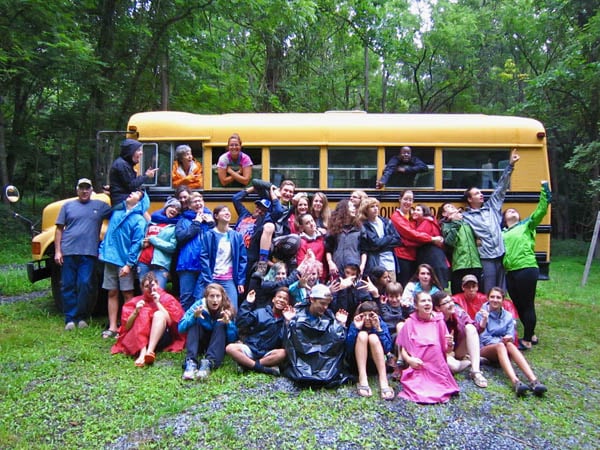

In Considering BCWS for Your Child
- Your child should be interested in some aspect of nature.
- Make sure your child has a role in choosing camp.
- Consider whether your child has been able to handle overnights away from you.
- Your child may want to find a friend who also wants to attend.
- Take a look at the camp description and general expectations below.
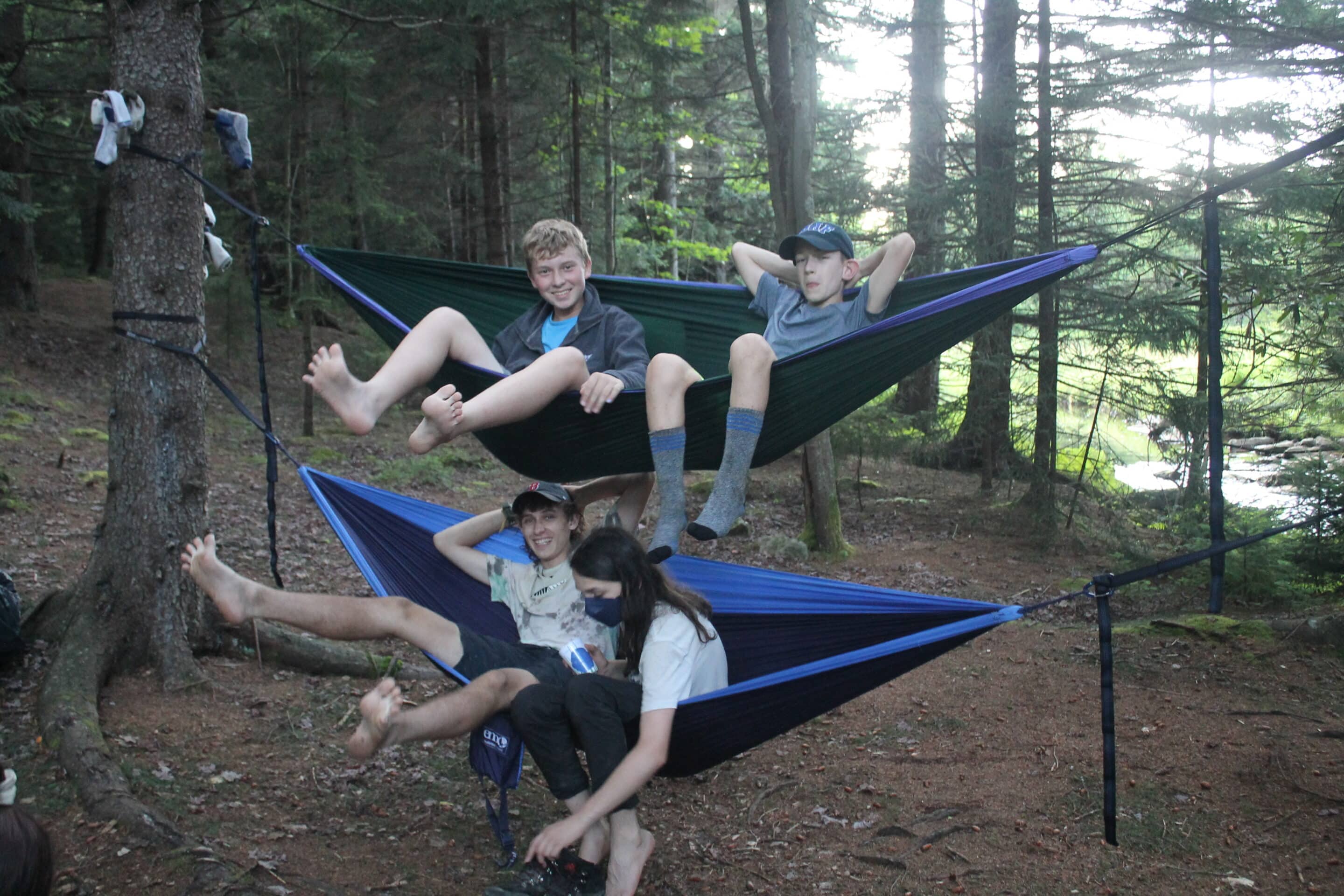
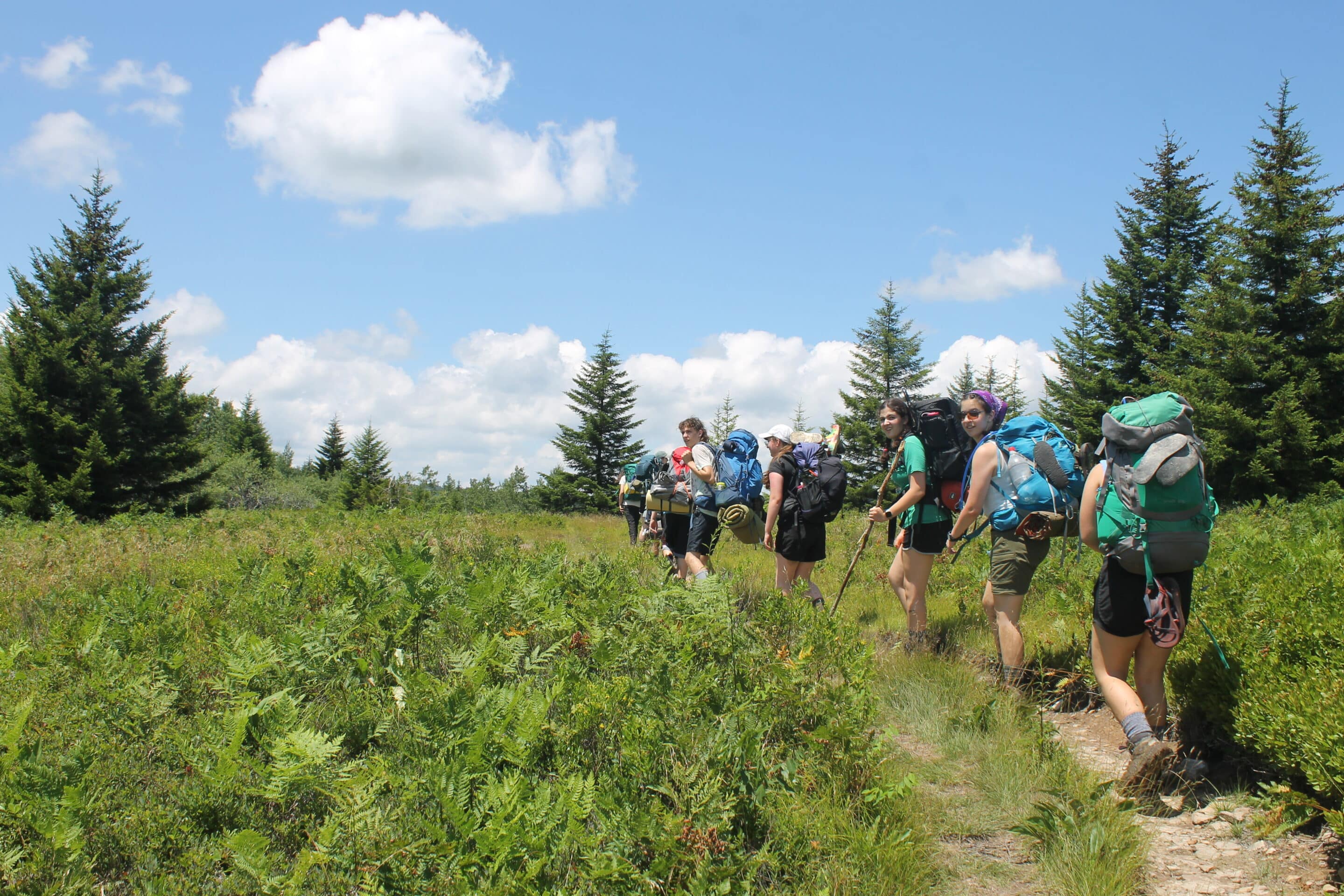
For Both Senior and Junior Program Campers Please Note
- While this may be a first camping experience, it should NOT be the first sleepover experience away from parents and home. We strongly recommend some practice sleepaways as the summer nears, such as with friends or relatives, including a weekend away. If an overnight is a large first step, start with a long evening away, in which you pick up your child rather late: just in time to go to bed.
- This camp focuses strongly on interaction with and education about nature. There is no prerequisite of any amount of specific knowledge before attending.
- If you are considering camp before February, and either you or your child is undecided, attend one of the presentations in the DC area with your prospective camper. After February, you can email to ask for contacts — families returning to the camp — who are close to you geographically.
Further Suggested Preparations Specific to Junior or First-Time Campers
As the day for departure arrives:
- Admit to yourself that you will probably miss your child, but do not burden your child with this point, and do not dwell on the fact that the family or the pets will miss your child while s/he is gone.
- You may find this article on homesickness useful, or for more in-depth reading; you may want to take a look at Homesick and Happy — How Time Away From Parents Can Help a Child Grow by Michael Thompson, PhD.
- Be clear that you and the child will not be communicating by phone (we have only one, and it is for business and emergencies only). Talking on the phone tends to make homesickness worse!
- Involve your child in packing. As you and the child pack, include familiar belongings and clothes. The packing lists are also supplied in the materials sent to registered campers.
- In packing, include a self-addressed envelope as encouragement! We do our best to get them to write.
- Talk about the fun they will have.
- It may be helpful to take a look at the many images available at this website or at our Facebook page.
- Review the General Expectations for Camper Behavior with your child.
- Write a letter a day or two in advance so your child will receive something in the first mail delivery.
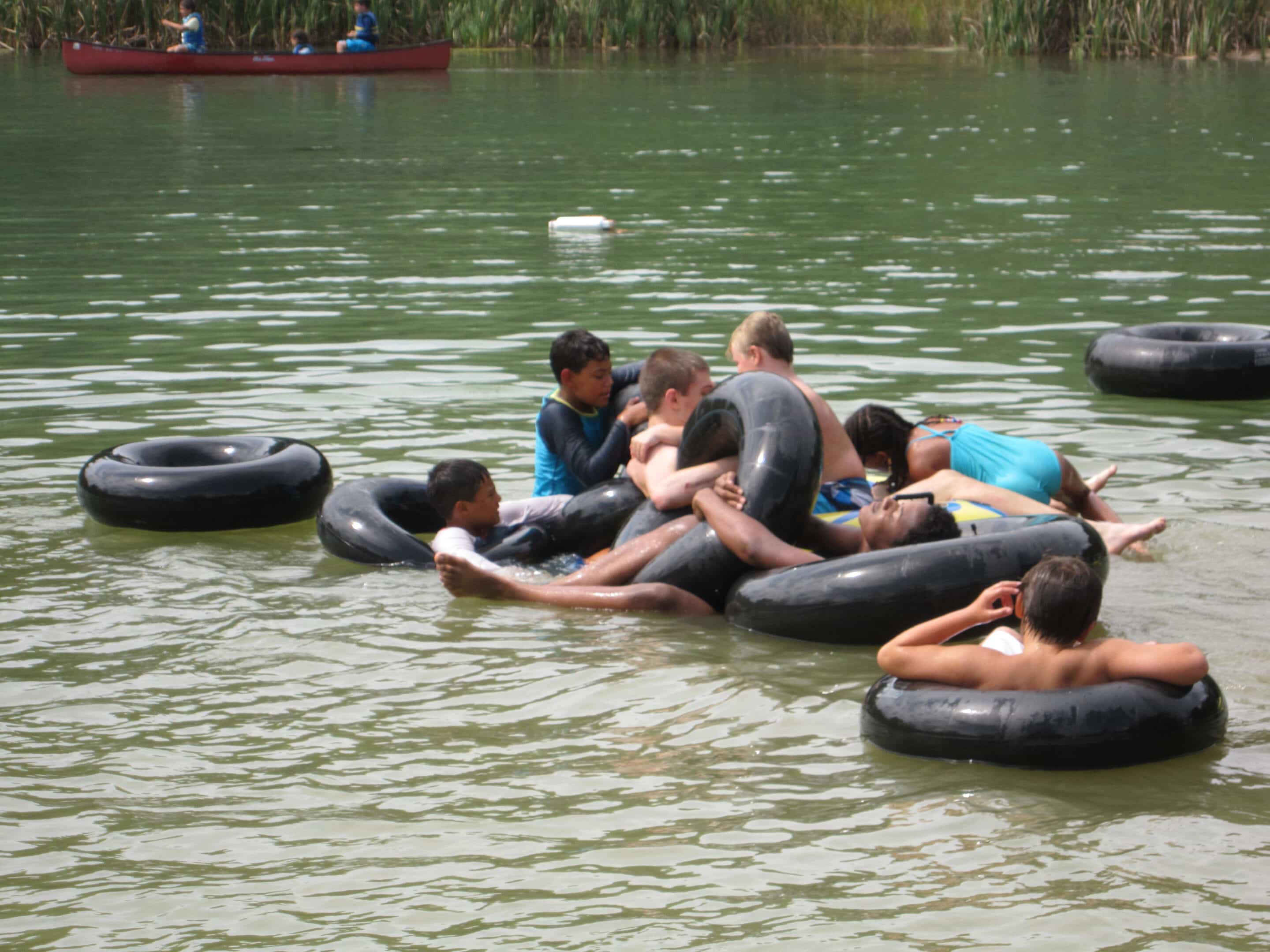
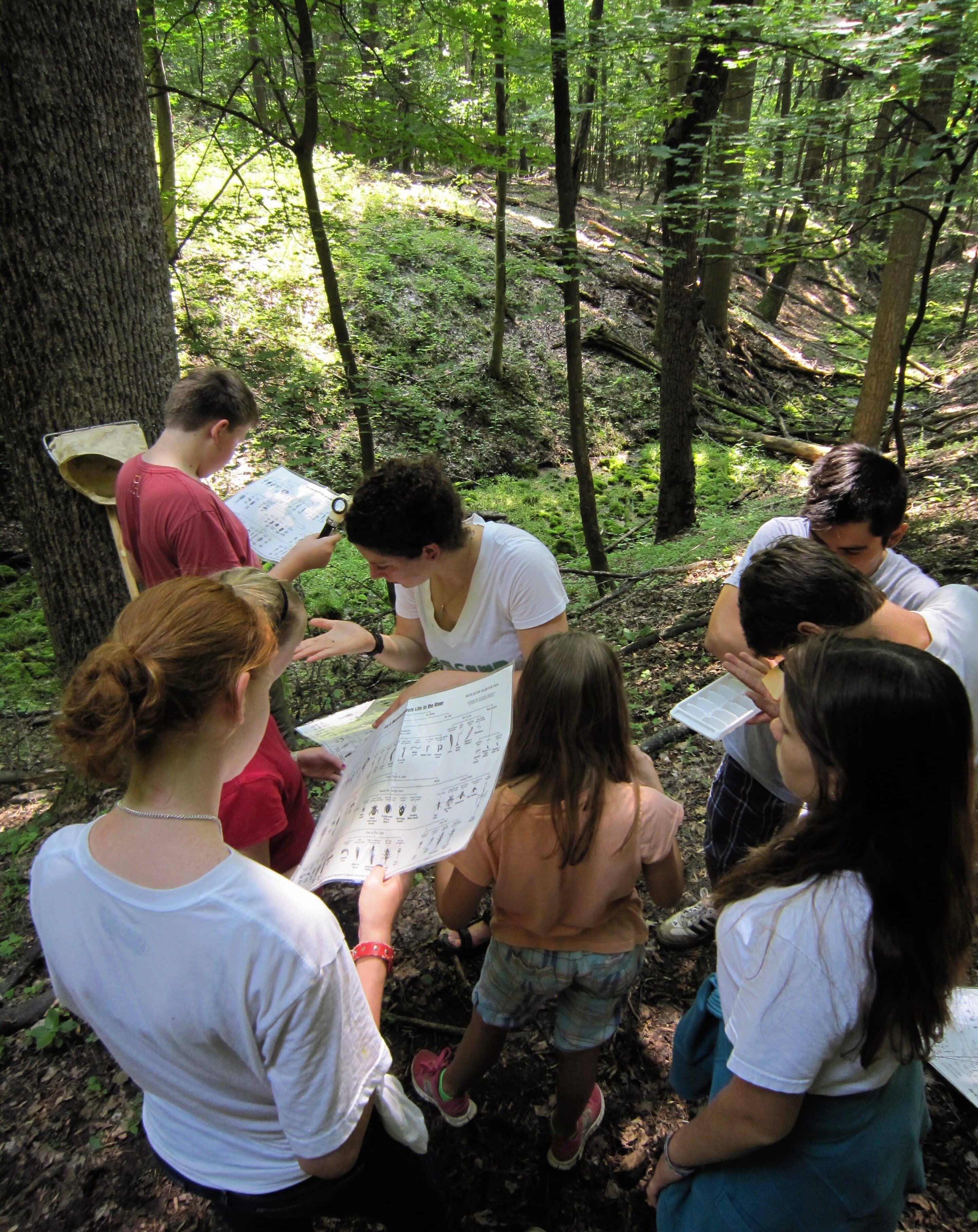
On Opening Day and During Camp
- Help the child get luggage to the dorm, but then step back and let him/her do the unpacking. Staff are on hand to help out. You can head down to the lodge for a snack and to have a look around, allowing your child to join you for a tour in a little while.
- Avoid a big fuss at departure. Do say goodbye, but do not draw it out.
- Send lots of letters, comic strips, sports statistics, something fun, but NOT GUM, CANDY OR OTHER FOOD.
- In letters, avoid bad news, avoid telling how you miss the child, and avoid telling how much fun you are having without him or her. If your child will miss a big family event, avoid discussing your plans for that day. Stick to short news bits, funny stories, etc.
- Do not be despondent if YOU don’t get any mail. We encourage and provide time for letter-writing, but can only lead a horse to water…You will hear from us if there are any concerns, and we do not hesitate to consult you for advice specific to your child.
- Remember that the staff are trained to deal with homesickness and many other woes and that the whole purpose of the staff is to provide for the happiness and general well-being of your child.
- Pick up your child on time. Being the only one left long after departure time is over can really dampen the best camp experience.
General Expectations for Camper Behavior
We will have an orientation immediately after lunch on the first day, including specific rules. The guidelines that follow are meant to help campers know general expectations, so parents are encouraged to share this section with campers. Our standards are intended to protect the physical and emotional well-being of the campers, staff, and the wildlife sanctuary.
- Campers and staff treat one another with kindness. We do not tolerate abusive behavior or language.
- BCWS community members must respect the honor, dignity and privacy of others, and the intellectual property of others and BCWS at all times. Without first obtaining written permission of all those involved, campers and staff may not publish identifiable names and photos, personal information of other BCWS participants or any BCWS proprietary information, including photos of BCWS on any public media including that of the internet.
- We all take responsibility for our own belongings and share in cleaning duties.
- In our behavior, we seek to disturb the sanctuary as little as possible, and campers may handle wildlife only as guided by the staff. We conserve resources in any way we can.
- We function in groups of all sizes, and also have time alone, but campers are limited in how far and how long they can range without supervision.
- We have regular meals and snacks, but no one keeps food outside of the kitchen, or medications (even over-the-counter medications) outside of the infirmary.
- The use or possession of firearms, tobacco, alcohol or other controlled substances is prohibited, and defiance of this rule is grounds for dismissal.
